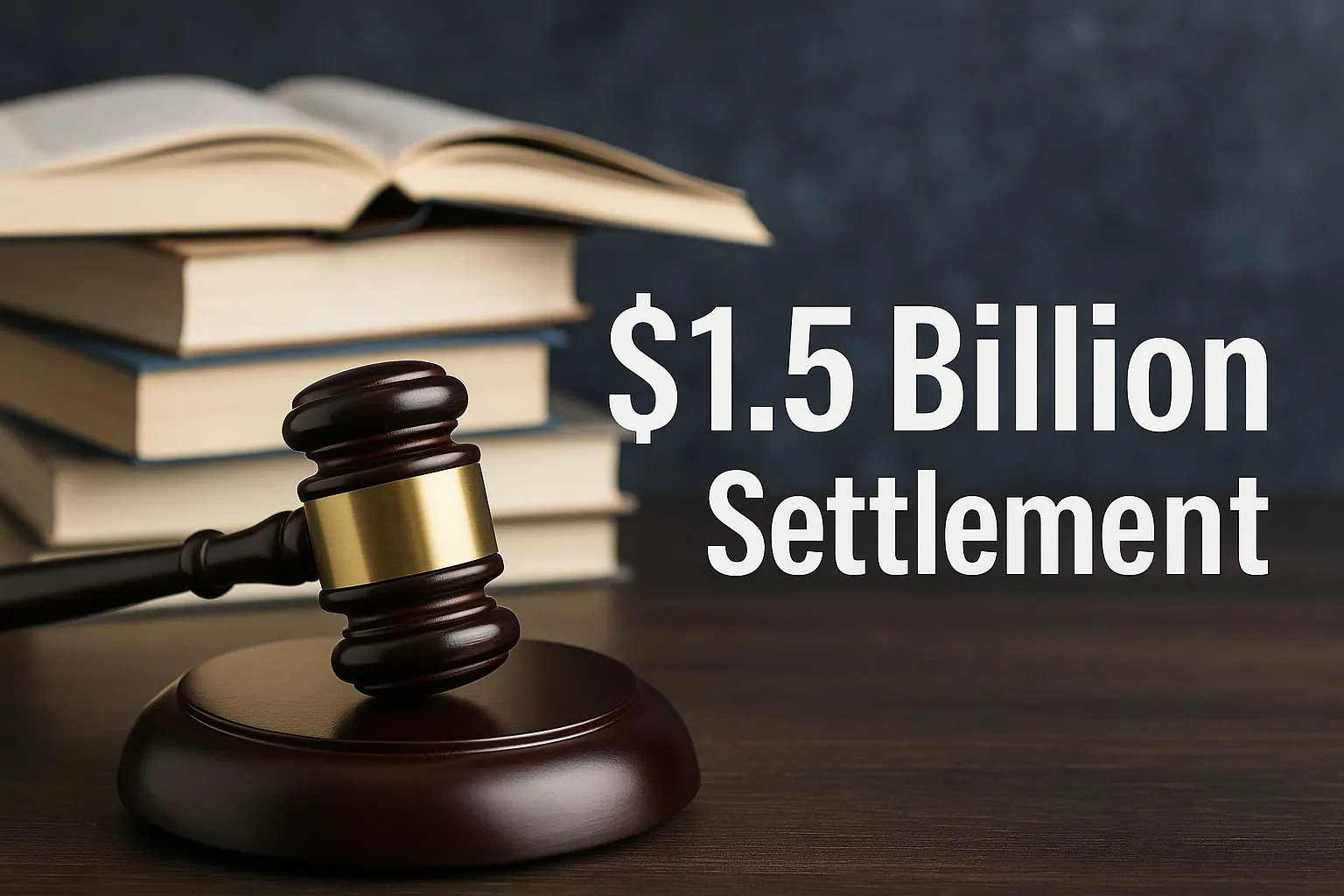The AI startup Anthropic has agreed to pay $1.5 billion in a landmark settlement over book piracy allegations. This case goes far beyond one company’s legal troubles. It signals a turning point in the relationship between artificial intelligence and intellectual property, redefining how technology companies handle copyright in their relentless pursuit of data.
Context: the lawsuit against Anthropic
As reported by The Guardian, authors and publishers accused Anthropic of illegally using copyrighted books to train its AI systems. The claim: that vast swathes of literature were ingested without permission, without payment, and without acknowledgment.
Rather than risk a prolonged trial, Anthropic chose to settle, paying $1.5 billion—one of the largest sums in tech copyright history. This move does not admit guilt, but it concedes the strength of the authors’ case and the potential damage a courtroom defeat could inflict.
Oppositional Argument: accountability comes late
This settlement should not be celebrated as corporate responsibility. It is damage control. For years, startups like Anthropic and OpenAI consumed copyrighted works under the excuse of “fair use.” They built billion-dollar valuations while authors struggled to protect their livelihoods.
Only now, after legal pressure and mounting public anger, does accountability arrive. And even then, it is bought, not earned. A $1.5 billion payout is immense—but for an industry projected to generate trillions, it is survivable. The message: exploit first, settle later.
Analytical Breakdown: implications for AI and copyright
The settlement sets a precedent. Other AI firms will face similar lawsuits from publishers, musicians, filmmakers, and journalists. Training data is the foundation of generative AI, and much of it comes from copyrighted sources. If every creative industry demands compensation, the economics of AI will shift dramatically.
Three consequences stand out:
- Rising costs for AI companies. Licensing deals, once avoided, will become unavoidable.
- Stronger bargaining power for creators. Authors who were once ignored now have leverage.
- Legal fragmentation. Courts across countries will deliver different rulings, leaving the industry in legal limbo.
The settlement also raises questions about transparency. Companies have hidden their datasets behind claims of “trade secrets.” That shield is crumbling. Regulators and courts now demand clarity: what data was used, and was it lawful?
Human Perspective: creators fight back
Behind this case are authors whose work was scraped without consent. For many, writing is not a goldmine but a fragile livelihood. Watching tech giants monetize their words without payment is theft in everything but name.
The settlement validates their struggle. It tells creators they are not powerless. Yet for displaced writers, many of whom may never see direct compensation, it feels hollow. A lump-sum payout to publishers and associations does not replace decades of lost royalties.
Counterarguments
Some argue that restricting training data will cripple AI progress. They claim innovation depends on broad access to human knowledge. But innovation without consent is exploitation. Progress cannot justify piracy.
Others note that the settlement may lead to monopolization—only the richest AI firms can afford billion-dollar deals, while smaller startups die. Yet perhaps that is the price of respecting creators. If survival depends on fair licensing, so be it.
Conclusion: the first domino falls
The Anthropic book piracy settlement is a watershed. It proves that AI companies are not untouchable. They must face the same laws as any other business. But it also reveals the imbalance of power: corporations can buy their way out of accountability, while creators fight for scraps.
This is not the end of the battle—it is the first domino. The next lawsuits will come from every sector whose work was stolen. Whether this leads to a fairer system or simply more expensive piracy will depend on how regulators, courts, and the public respond.
